The best PCs for VR from famous brands.
After what feels like a millennium, VR headsets are finally becoming affordable to everyone with a decent budget instead of being available only to the elite. However, while VR technology itself became substantially cheaper, it still demands a powerful computer to unleash its full potential. This is where this post comes in.
This article was written to help you find the best PC for VR so that you get to enjoy an optimal performance without any lagging or crashes. Virtual reality is the new stage of evolution in the video game industry and with Oculus along with the Valve Index are leading the charge, it’s in your best interest to get a computer that acts the part.
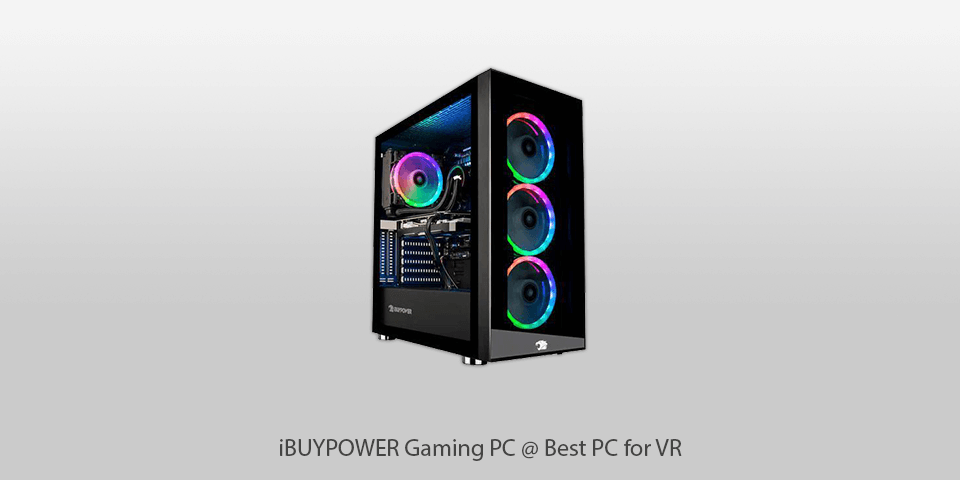
CPU: Intel Core i7-9700F 3.0Ghz | GPU: NVIDIA GeForce GTX 1660 Ti | RAM: 16 GB | Storage: 240 GB | Weight: 31.5 pound
⊕ Broad range of ports
⊕ Makes minimum noise
⊕ Water-cooled system
⊕ RGB lighting can be adjusted with a remote
⊖ Doesn’t have a DVD-drive
⊖ On the expensive side
Well-worthy of being considered the best PC for VR in its price range, this model comes with an i7-9700F CPU, GTX 1660 Ti graphics card, 16GB of DDR4 RAM, a 240GB SSD, and a 1TB HDD for storing most of your files. This computer lets you play the latest VR titles with minimum loading times and a high framerate.
It has a lot going for it in terms of both hardware and looks. The side panel of the case is made of tempered glass, which increases the PC’s appeal to users that adore flashy aesthetics.
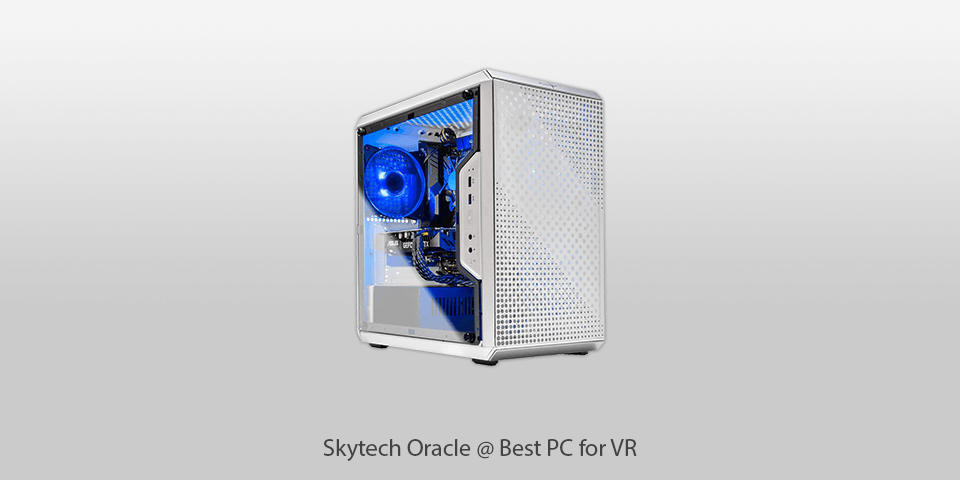
CPU: AMD Ryzen 5 2600 | GPU: NVIDIA GTX 1660 | RAM: 8 GB | Storage: 500 GB | Weight: 18.56 pound
⊕ Minimalist, refined design
⊕ Fantastic performance
⊕ Reasonably priced
⊕ Nice selection of ports
⊖ Doesn’t have a USB Type-C input
The Oracle deserves to be considered the best PC for VR simply due to providing the best value for your buck. Equipped with a 2nd-gen Ryzen 5 2600 CPU and the GTX 1660, Oracle allows you to enjoy a fantastic framerate in both 4K resolution and Virtual Reality games.
If you’re not tech-savvy enough to build your own PC and don’t want to overpay for a mediocre gaming machine, this option is a terrific compromise thanks to both the provided processing power and the Nvidia RTX 2080 graphics card.
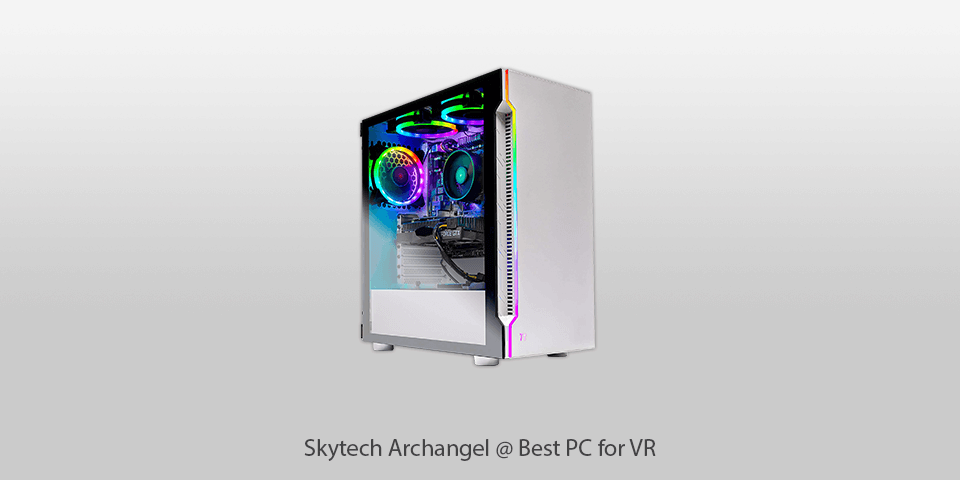
CPU: Ryzen 5 3600 3.6GHz | GPU: GTX 1660 6G | RAM: 8 GB | Storage: 500 GB | Weight: 28.0 pound
⊕ Perfect for 1080p gaming
⊕ Stylish case
⊕ Easy to install
⊕ Convenient cable management
⊖ Doesn’t have USB-C inputs at the front
Archangel is a terrific budget VR PC that provides an enjoyable gaming experience thanks to its Nvidia GTX graphics card and AMD's Ryzen 5 3600 hexa-core CPU while being offered at a reasonably low price.
The tower itself is of mediocre height and provides enough power for you to enjoy AAA games in crisp 1080p resolution as well as VR titles with a high framerate, which is something you’ll rarely find at this price range.
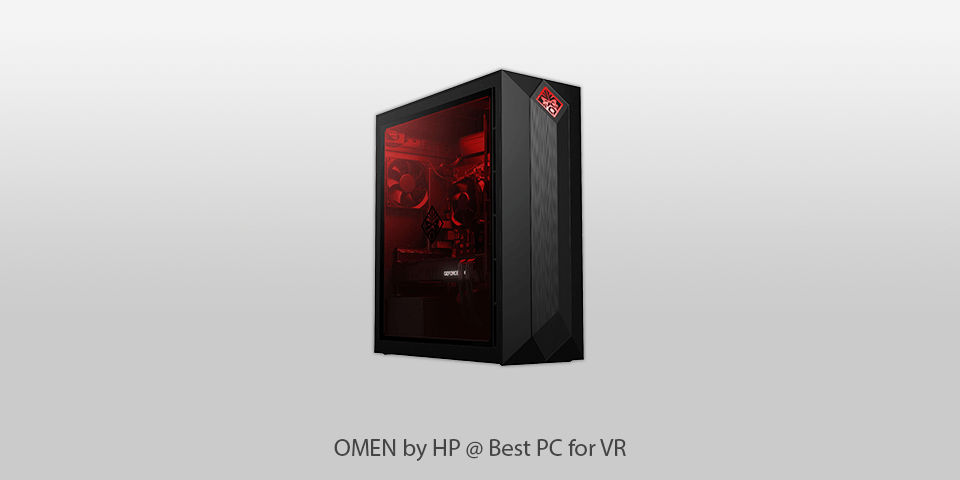
CPU: Intel Core i9-9900K | GPU: NVIDIA GeForce RTX 2080 SUPER | RAM: 32 GB | Storage: 1 TB | Weight: 29.2 pound
⊕ Trendy design
⊕ Top-notch case
⊕ Can be personalized
⊕ Detachable dust filter
⊖ Costs quite a lot
⊖ Lacks a flashcard slot
This VR gaming computer is equipped with state-of-the-art hardware to let you enjoy both the latest Virtual Reality installments and AAA titles like Assassin’s Creed Valhalla, Fortnite, Valorant, etc.
Additionally, you get to enjoy a stylish, boutique-themed look and a liquid cooling system that makes the offered performance even smoother. The OMEN is also easily upgradeable, meaning it can serve as your gaming PC for years to come.
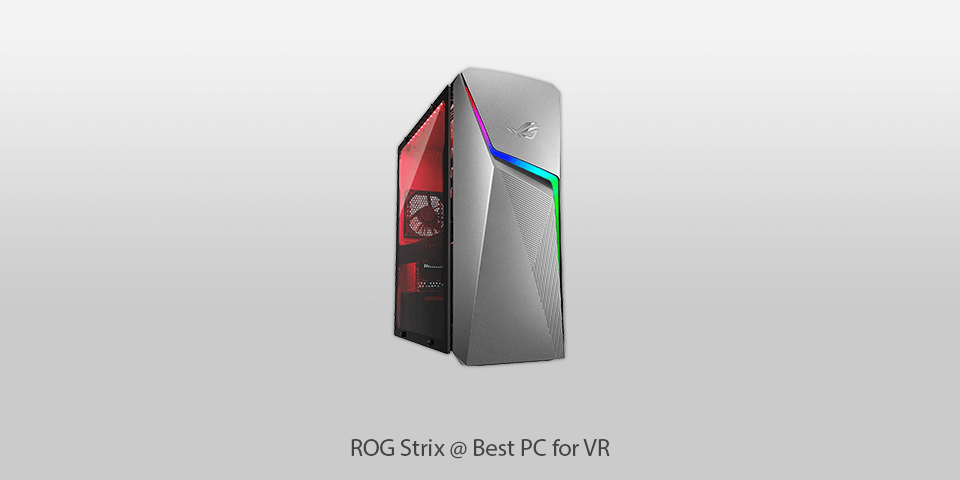
CPU: AMD Ryzen 5 3400G | GPU: GeForce GTX 1650 | RAM: 8 GB | Storage: 512 GB | Weight: 17.6 pound
⊕ Packs a lot of power
⊕ Robust and sturdy
⊕ Impressive performance
⊕ Great WiFi coverage
⊖ Quite expensive
If you’re interested in a cheap VR ready PC, then the Strix GL10 deserves your attention. The manufacturer got rid of some of the flashy extras and high-end hardware to produce a solid entry-level gaming machine. Put together with care and diligence, the Strix provides smooth, stable performance while being offered in a stylish case.
Other than being able to run all popular VR games efficiently, this PC is also good enough for playing titles like GTA 5, Fortnite, Assassin’s Creed, Valorant, and much more.
| Image | Name | Features | |
|---|---|---|---|
 |
iBUYPOWER Gaming PC
Our Choice |
CHECK PRICE→ | |
 |
Skytech Oracle
Affordable |
CHECK PRICE → | |
 |
Skytech Archangel
Good Perfomance |
CHECK PRICE → |
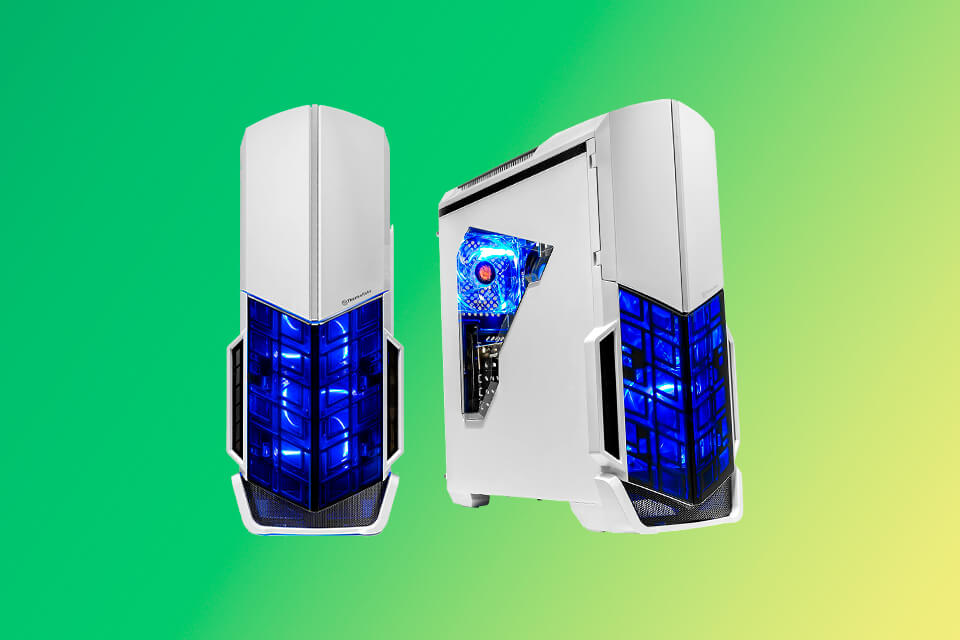
Each VR system offers different things in terms of what you get to experience as a user. Vive established a partnership with SteamVR to provide support for most of Valve's older titles and has an open API. Priced at $800, the HTC Vive is noticeably more expensive than the $600 Oculus Rift, but you also receive additional accessories, a couple of controllers, and two base stations that are used for tracking your movement. Meanwhile, Oculus is mainly designed for games that have you sitting or standing in one place. Valve has also recently released its Index VR system, but getting your hands on it right now is very difficult due to it constantly being out of stock.
Putting together a computer or laptop for virtual machines is relatively simple. That said, ensuring your system offers all the power necessary to enjoy Virtual Reality titles in their full glory is rather tricky, which is why it’s vital to know what hardware you need to satisfy the demands of your VR headset.
The primary piece of hardware that determines how well your computer is suited for VR is the GPU, so that’s the first thing you have to look at when choosing the best PC for VR and where most of your money should go. In contrast to office PCs and laptops that usually only have a basic GPU built into the processor, gaming machines always come with a discrete graphics card. Keep in mind that even if a PC has a discrete GPU, it doesn’t mean it's powerful enough to support VR technology. Give preference to models that have at least a GeForce GTX 1060 or Radeon RX 480 graphics card to enjoy a smooth performance while exploring the virtual reality world.
According to the manufacturer, meeting the recommended specifications instead of the minimum ones allows you to enjoy optimal performance regardless of the type of game you’re playing. Thus, you should be looking at VR ready desktops that come with a GTX 970/ R9 290 graphics card or better to enjoy 90fps game footage. While you can play a standard game at a lower fps, VR headsets demand 90fps to ensure everything works properly and you don’t suffer from motion sickness. This means that despite such specs being “recommended”, they can be treated as “minimum” if you want to play the latest VR titles without any problems.
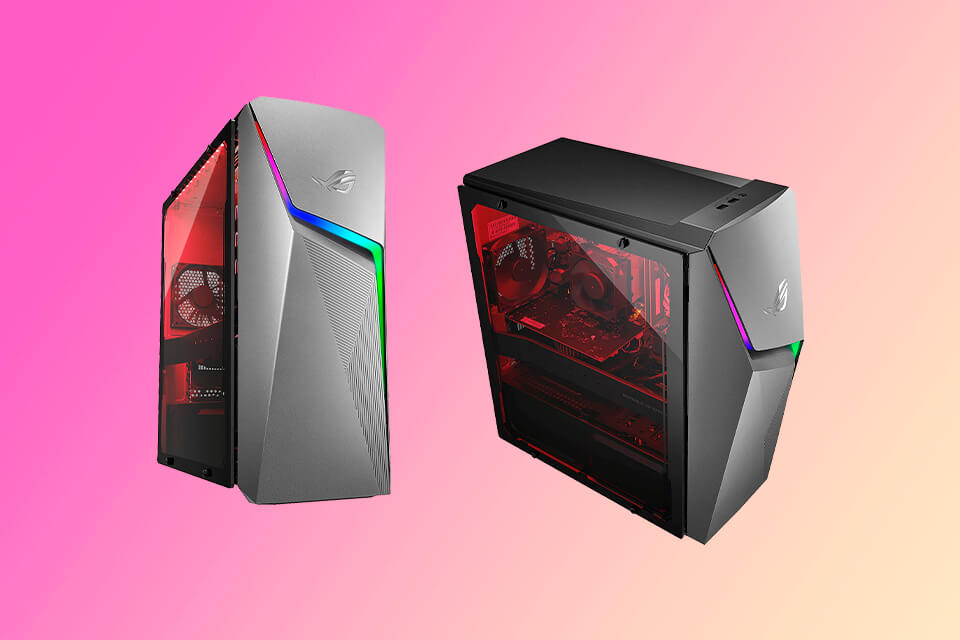
HTC Vive has nearly identical requirements to those imposed by the Oculus Rift, with the primary distinction being the more modest RAM requirement (4GB for Vive) and different output demands (HDMI or DisplayPort instead of several USB inputs). In terms of all other hardware elements, Rift and Vive require the same specifications.
When selecting a PC for Virtual Reality, you should prioritize getting a quality graphics card and CPU. For decent performance, you need to have an equivalent to an i5-4590 processor and a GTX 1650 Super or RX 5500 XT GPU or better.
You can get a VR-compatible rig for as low as $499, meaning such a setup is cheaper than ever. Both AMD and CyberpowerPC have $499 machines included in the Oculus Rift bundle. Such an offer lets get a solid PC without having to worry if it’s powerful enough to use with VR technology.
Basic VR headsets aren’t exclusive to PCs, and you can also play VR titles on your PlayStation, as the PS store offers a long list of compatible games. When pairing VR with your console, you can use either the DualShock controller or Sony’s special motion controller.
You need to have at least a GTX870 / AMD R9 290 or better graphics card, i5-4590 or better processor, 8GB+ of RAM, and an HDMI 1.3 output.

 Rating
Rating